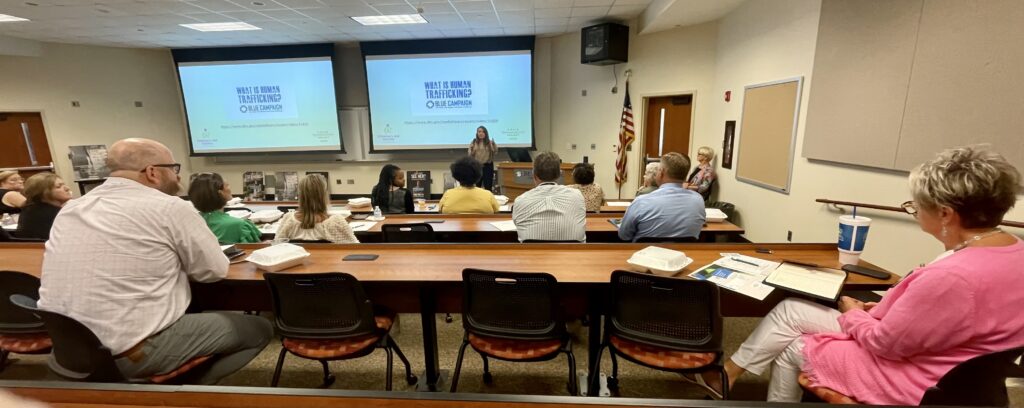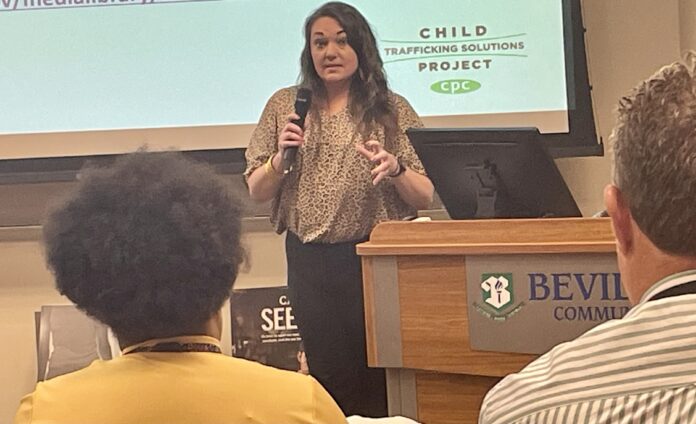The Child Trafficking Solutions Project (CTSP) on Aug.16 hosted an informative lunch-and-learn event in collaboration with the Walker County Children’s Policy Council and the Walker Area Community Foundation.
The event, held at Bevill State Community College, aimed to educate the community about child trafficking and the importance of collaborative partnerships in addressing this critical issue. Crystal Gregory, a professional with the Department of Homeland Security Investigations, served as the guest speaker.
During the event, Gregory emphasized that human trafficking is modern-day slavery and involves the exploitation of individuals through force, fraud, or coercion. She highlighted the difference between human smuggling and human trafficking, stating that smuggling refers to the illegal movement of individuals across borders, while trafficking involves the illegal exploitation of individuals.
“Human trafficking is about exploitation, not transportation, and is a highly profitable crime that violates human rights,” Gregory said.
Gregory also emphasized that human trafficking occurs worldwide, including in the United States.
“It can happen in big cities, suburbs, and even rural towns,” she said “Victims of human trafficking can be US citizens or from other countries, and they can be of any age, race, or gender. However, they all share the vulnerability to being exploited.”
Gregory discussed the different types of human trafficking, including sex trafficking, forced labor, and domestic servitude. She explained that sex trafficking involves the manipulation or forceful coercion of individuals to engage in sex acts for money.
“Sex traffickers often use violence, threats, manipulation, or promises of love and affection to lure victims,” Gregory said. “Victims of sex trafficking can be found in various locations, such as truck stops, hotel rooms, rest areas, street corners, clubs and private residences.”
Gregory emphasized that any person under the age of 18 involved in a commercial sex act is considered a victim of human trafficking, with no exceptions.
Forced labor, on the other hand, takes many forms and can occur in factories, farms, construction sites, and more. Victims of forced labor are often made to work for little or no pay and may be forced to manufacture or grow products consumed by others.
“Victims of domestic servitude are hidden in plain sight and forced to work in homes across the United States,” Gregory said. “Their traffickers often take away their identification papers and travel documents to limit their freedom. These victims may work as nannies, maids, or domestic help.”
Gregory highlighted that human trafficking is a hidden crime, and many cases go unnoticed or unreported.
“Victims may be afraid to come forward, or people may not recognize the signs even if it’s happening right in front of them,” she said, emphasizing the importance of raising awareness and bringing this crime out of the shadows.
Gregory encouraged the community to join the Blue Campaign, an initiative by the Department of Homeland Security to combat human trafficking and raise awareness.





